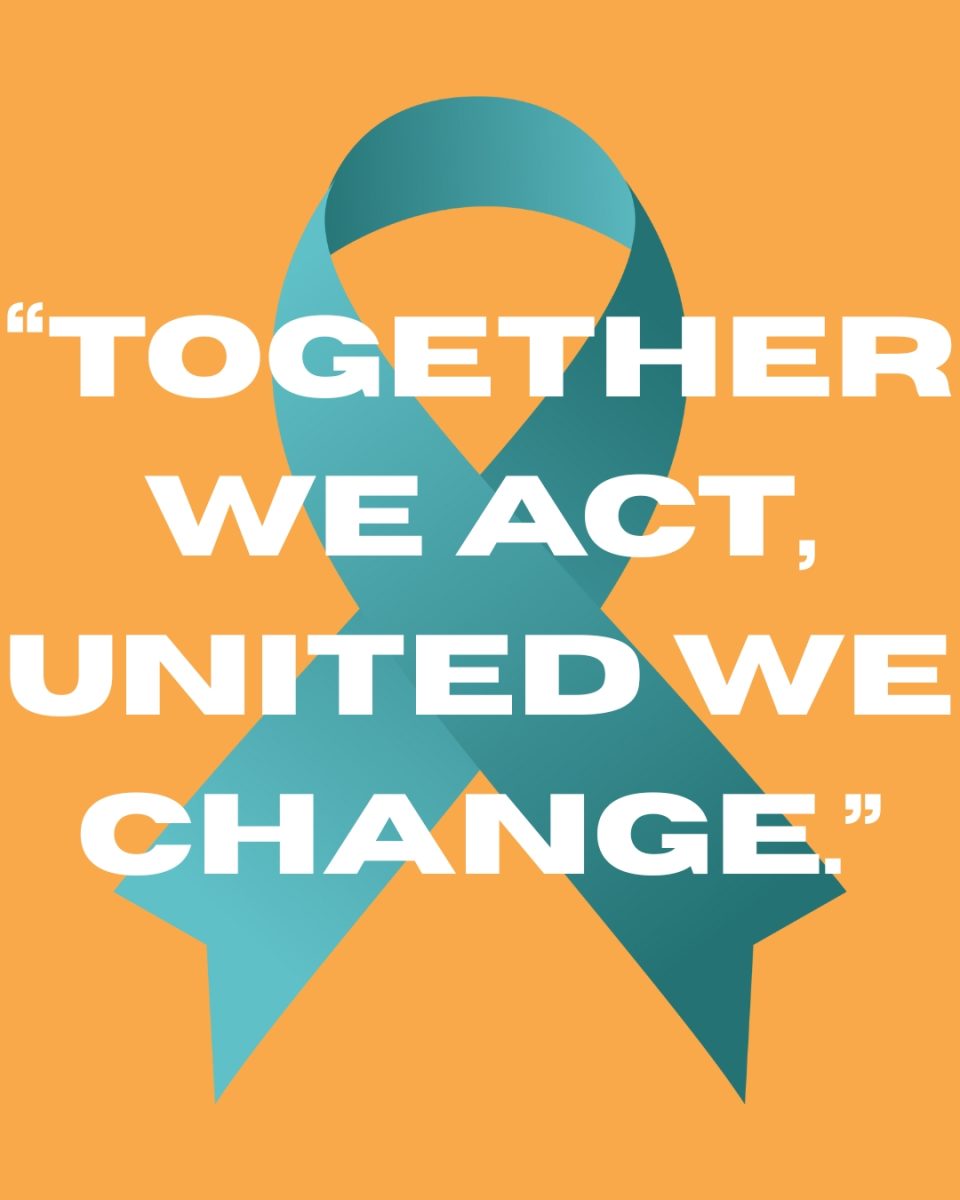Editors note: This article contains discussions of sexual violence.
This April marks the 24th annual Sexual Assault Awareness Month. “Together we act, united we change” is the slogan for this year, as sexual assault prevention and awareness organizations work to address and prevent sexual abuse, assault and harassment.
The CDC’s National Intimate Partner and Sexual Violence Survey’s last report was published in 2022 from findings in 2016 and 2017. The survey found that one in four women and one in 26 men have experienced “completed or attempted rape” in their lifetimes and one in two women and one in four men have experienced “unwanted sexual contact” in their lifetimes.
Throughout April, Suffolk University hosted an array of events educating, advocating for and bringing attention to SAAM. Many events were sponsored by the Title IX Office and Counseling, Health and Wellness.
Regardless of the month, Suffolk’s Title IX website has resources for students and staff who have experienced or know someone who has experienced sexual assault or who is in need of resources. You can file a Title IX report through their website or access external organizations that are set in place to help survivors.
“This April, the Suffolk community comes together in solidarity with those who have been affected by sexual violence, and it’s a time to renew our commitment to creating safer, more supportive environments for everyone,” said Catherine LaRaia, Director of the Office of Title IX and Clery Act Compliance at Suffolk, in an email statement to The Journal.
The National Sexual Violence Resource Center put out a press release April 1 to commemorate SAAM and call attention to the actions they are working on throughout the month.
“As prevention experts, we recognize that everyone has a role to play in promoting safe and supportive environments where everyone is treated with respect,” said Jennifer Grove, NSVRC Director, in the press release. “The goal of this year’s campaign is to help individuals and groups throughout the United States to understand their role and how when we act together to prevent sexual abuse, assault and harassment, we can make a real impact.”
President Donald Trump released a statement recognizing National Sexual Assault Awareness Month April 3.
In 2023, Trump was found guilty of sexually abusing E. Jean Carroll in 1996. More than a dozen women have accused Trump of sexual assault or harassment over the years, the Associated Press reported.
In his statement this year, Trump specifically highlighted cases of sexual assault caused by immigrants and undocumented people in the U.S.
“Every act of violence committed against an American at the hands of an illegal alien is a crime beyond all comprehension. For that reason, I am doing everything in my power to defend the dignity of every human life, keep violent criminals out of our country and end sexual violence,” the statement said.
As of 2021, the U.S. has been under Human Rights Watch for the influx of sexual “misconduct and abuse of asylum seekers at the hands of U.S. officials.” Between 2016 and 2021, there were at least 160 internal reports that went uninvestigated and raised concern about how immigrants and people seeking asylum in the U.S. are treated by Customs and Border Protection officers, Border Patrol agents and Immigration and Customs Enforcement officials.
The conversation around sexual assault has shifted throughout history. NSVRC’s website examines the history of SAAM and provides a brief overview of how sexual assault has become part of social conversation.
“It’s impossible to prevent an issue no one knows about and it’s difficult to make people aware of a problem without providing a solution,” said the website.
As activists started bringing this issue into conversation with other social movements, legislation began to be introduced, starting with the Violence Against Women Act in 1994. While this received pushback, it led the way for other laws to be put in place to protect survivors.
Every year since 1999, Denim Day has been observed as a sign of solidarity and support for victims and survivors of sexual assault. This started with a 1992 court case in Italy that convicted a man of raping an 18-year-old girl during a driving lesson. Years after the man was convicted, the Italian Supreme Court overruled this decision by stating that the survivor was wearing tight jeans and therefore she must have helped remove them – implying that what happened between the 45-year-old driving instructor and the 18-year-old student was consensual and no longer considered rape.
This decision caused an uproar among women in the Italian parliament and they wore jeans to work, showing their solidarity with the survivor. This movement sparked a worldwide movement for people to wear denim and fight back against victim blaming and stand with survivors of sexual violence.
This year, Denim Day is April 30.





















